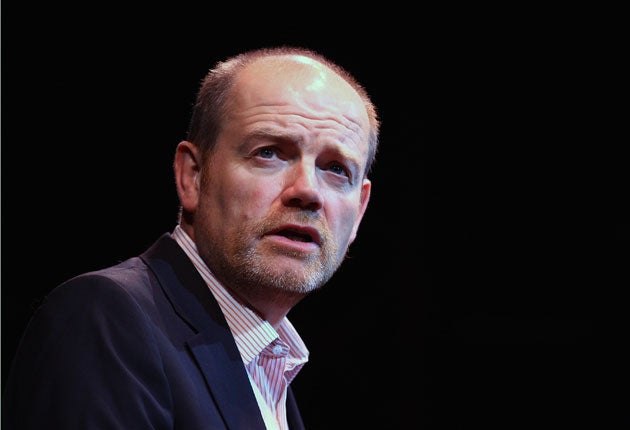BBC2 to be mostly repeats as cuts target corporation's original programming

Your support helps us to tell the story
From reproductive rights to climate change to Big Tech, The Independent is on the ground when the story is developing. Whether it's investigating the financials of Elon Musk's pro-Trump PAC or producing our latest documentary, 'The A Word', which shines a light on the American women fighting for reproductive rights, we know how important it is to parse out the facts from the messaging.
At such a critical moment in US history, we need reporters on the ground. Your donation allows us to keep sending journalists to speak to both sides of the story.
The Independent is trusted by Americans across the entire political spectrum. And unlike many other quality news outlets, we choose not to lock Americans out of our reporting and analysis with paywalls. We believe quality journalism should be available to everyone, paid for by those who can afford it.
Your support makes all the difference.BBC2 will become a channel on which 55 per cent of programmes are repeats, in an overhaul of the Corporation aimed at saving £700m a year.
The budgets of most of the BBC's digital channels will be trimmed, including BBC3, BBC4, Radio 1 Xtra and Radio 4 Extra. Radio 3 will broadcast far fewer live and orchestral concerts, while Radio 5 Live will be told to drop comedy shows and deploy fewer staff at sporting events.
About 2,000 jobs will be shed over the next five years – including 650 at BBC News – as the Corporation tries to offset a 16 per cent drop in income caused by the TV licence fee being frozen for six years at £145.50.
Factual programmes will no longer be made in Birmingham, which only a generation ago was home to a major BBC production centre at Pebble Mill. However, Radio 4's The Archers will continue to be recorded in the city.
BBC2 will no longer screen original daytime shows, except for some lunchtime news output. Original daytime programming will be left to BBC1, while BBC2 viewers will be offered repeats of BBC4 shows about history, science and the arts and global news programmes such as Hard Talk.
BBC2, home to such popular programmes as Mock The Week and QI, has been told to make fewer "entertainment and panel" shows and will cut its current affairs output by nine hours a year. BBC3, which has been told to "nurture and develop talent", will be moved to Salford, the BBC's key centre outside the capital.
Over the next decade the organisation will abandon its buildings in White City, west London – home to BBC television for 50 years – and house its London staff in the newly-refurbished Broadcasting House, close to Oxford Circus. The BBC's other principal hubs will be in Glasgow, Cardiff and Bristol. The corporation will make further savings through a 15 per cent reduction in the money it spends on bidding for sports rights.
The BBC News Channel will see 6 per cent being trimmed from its budget. The rolling news service will be expected to reduce unnecessary spending on what was described as "filler material".
Music lovers will be concerned that Radio 3 must cut 25 per cent of lunchtime concerts and reduce the cost of its evening concerts.
The BBC is conducting a review of its orchestras and singers to identify possible savings.
Join our commenting forum
Join thought-provoking conversations, follow other Independent readers and see their replies
Comments